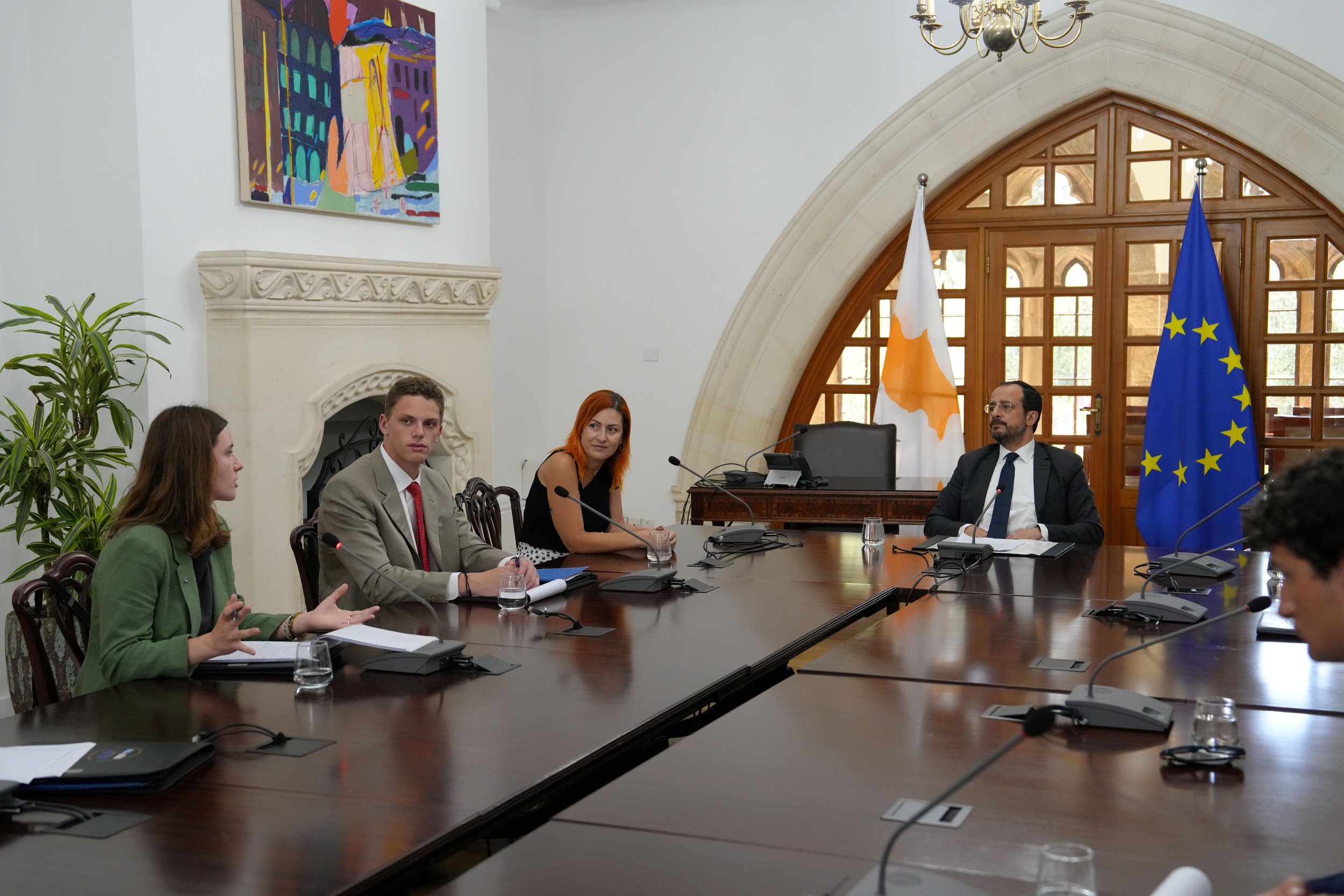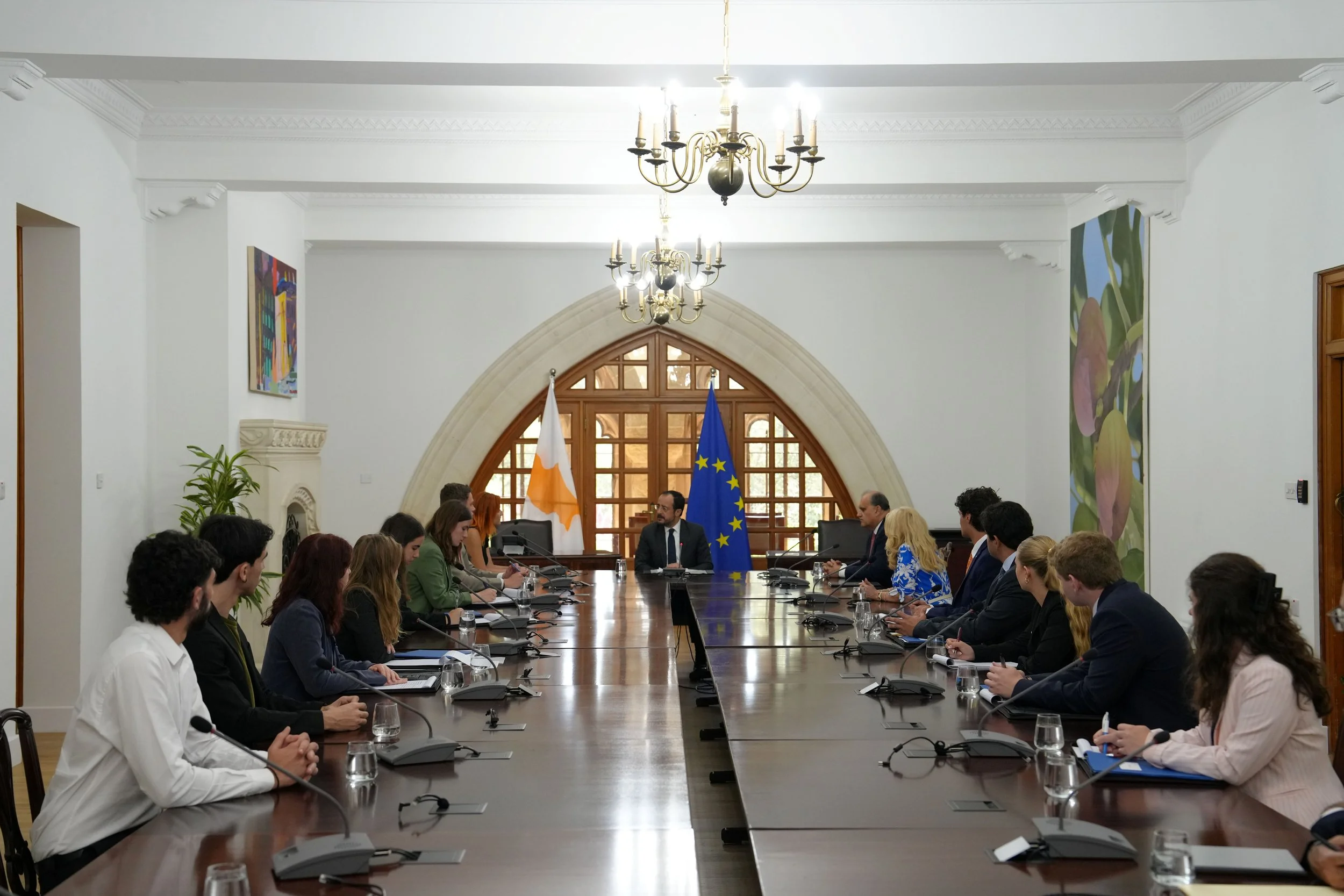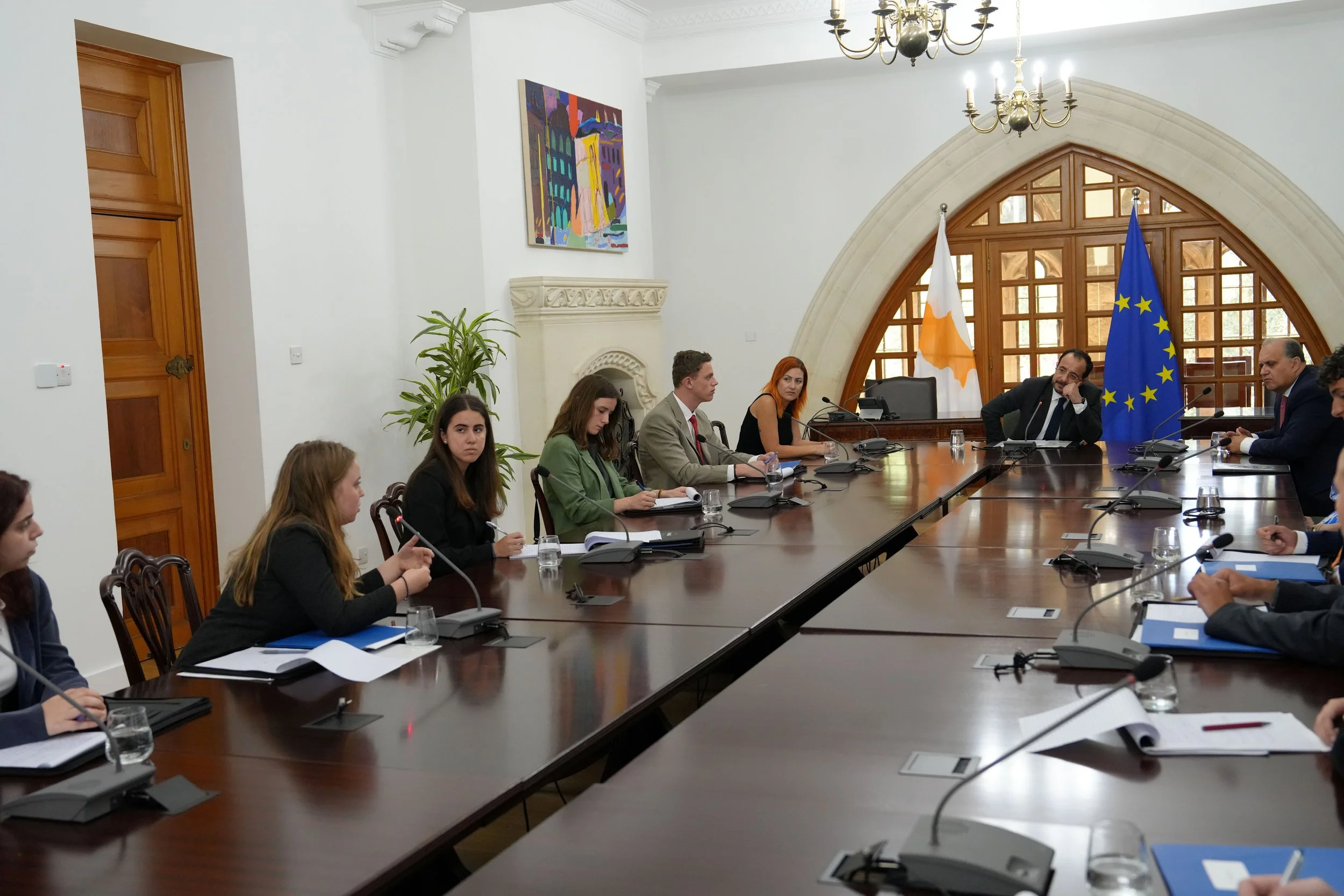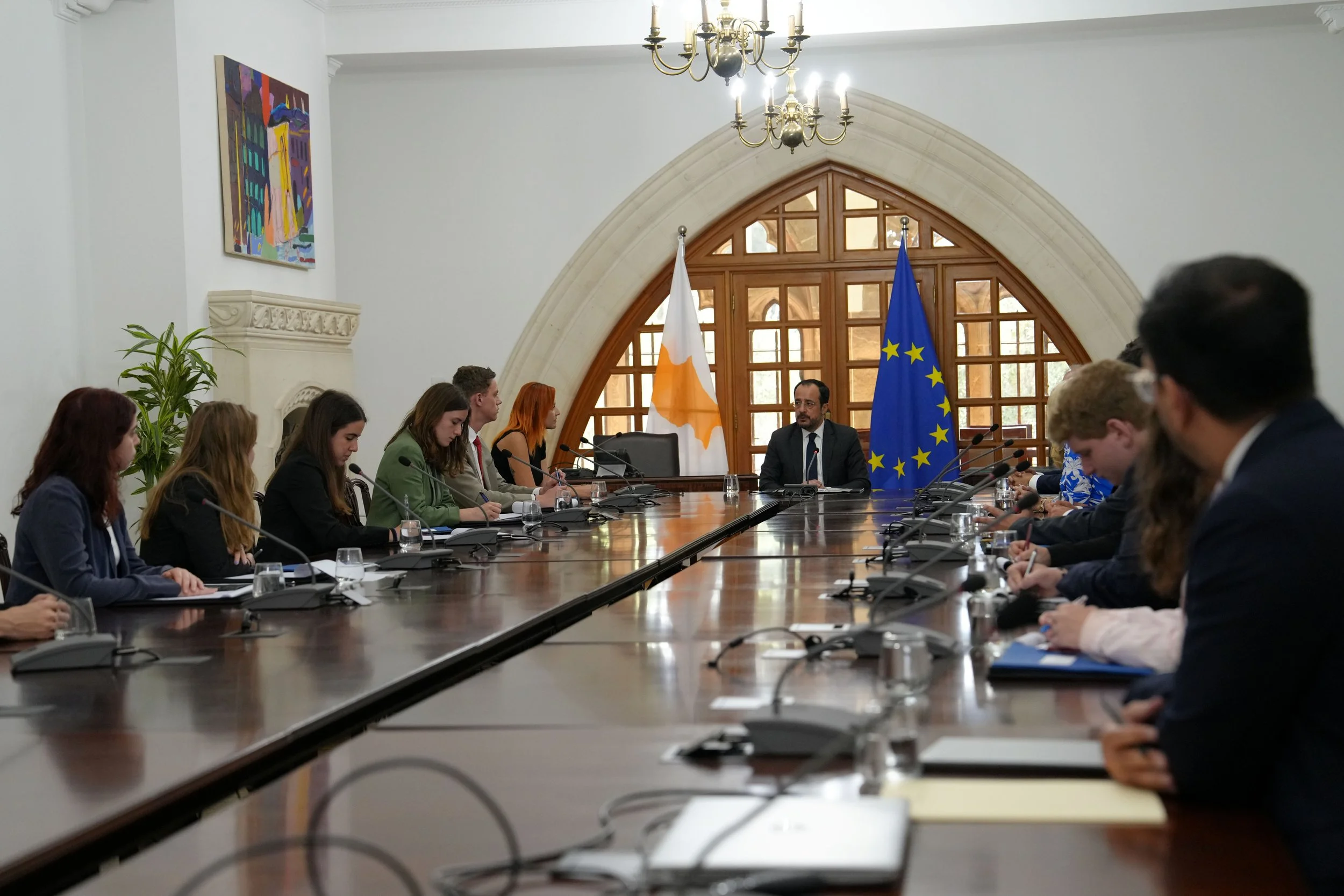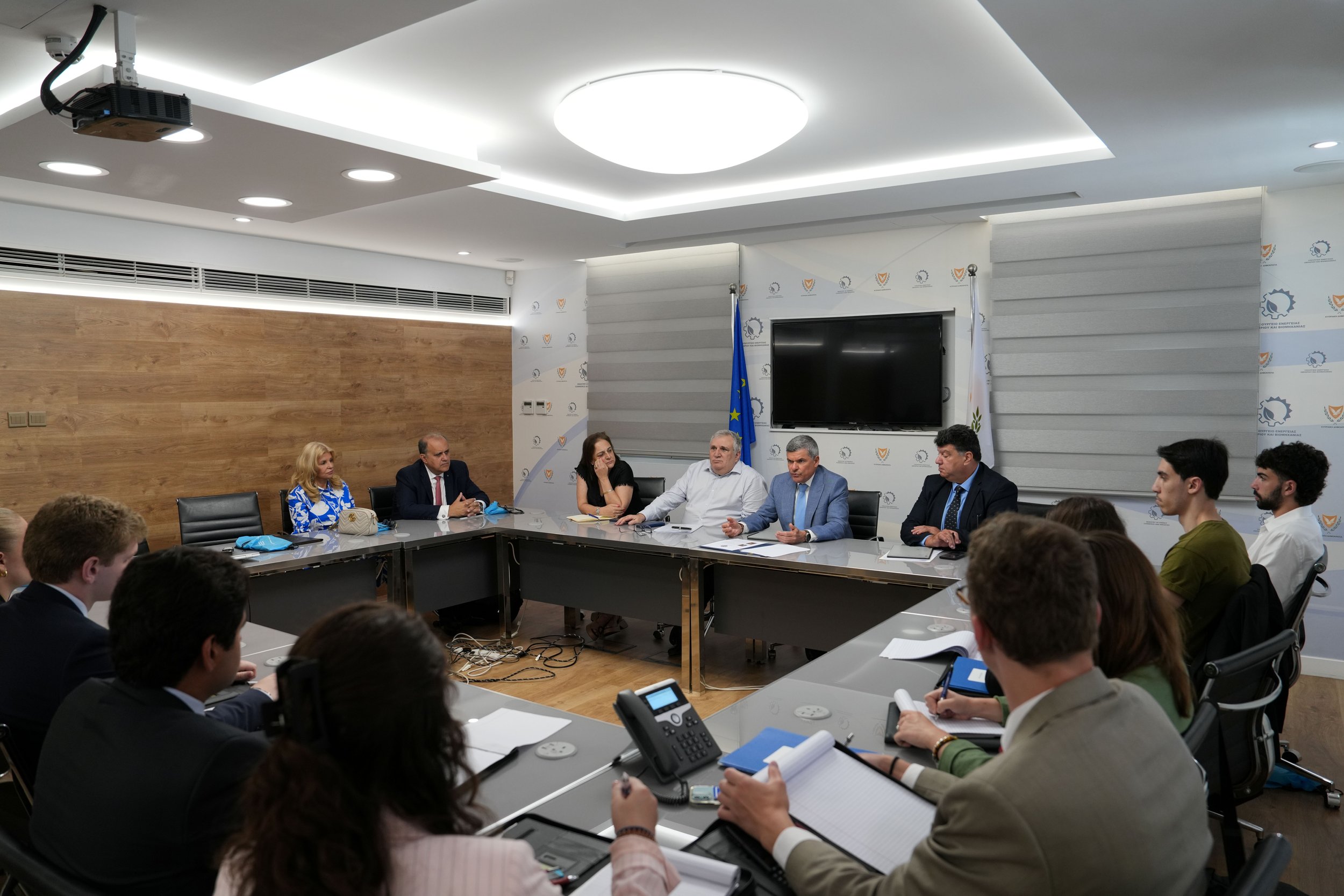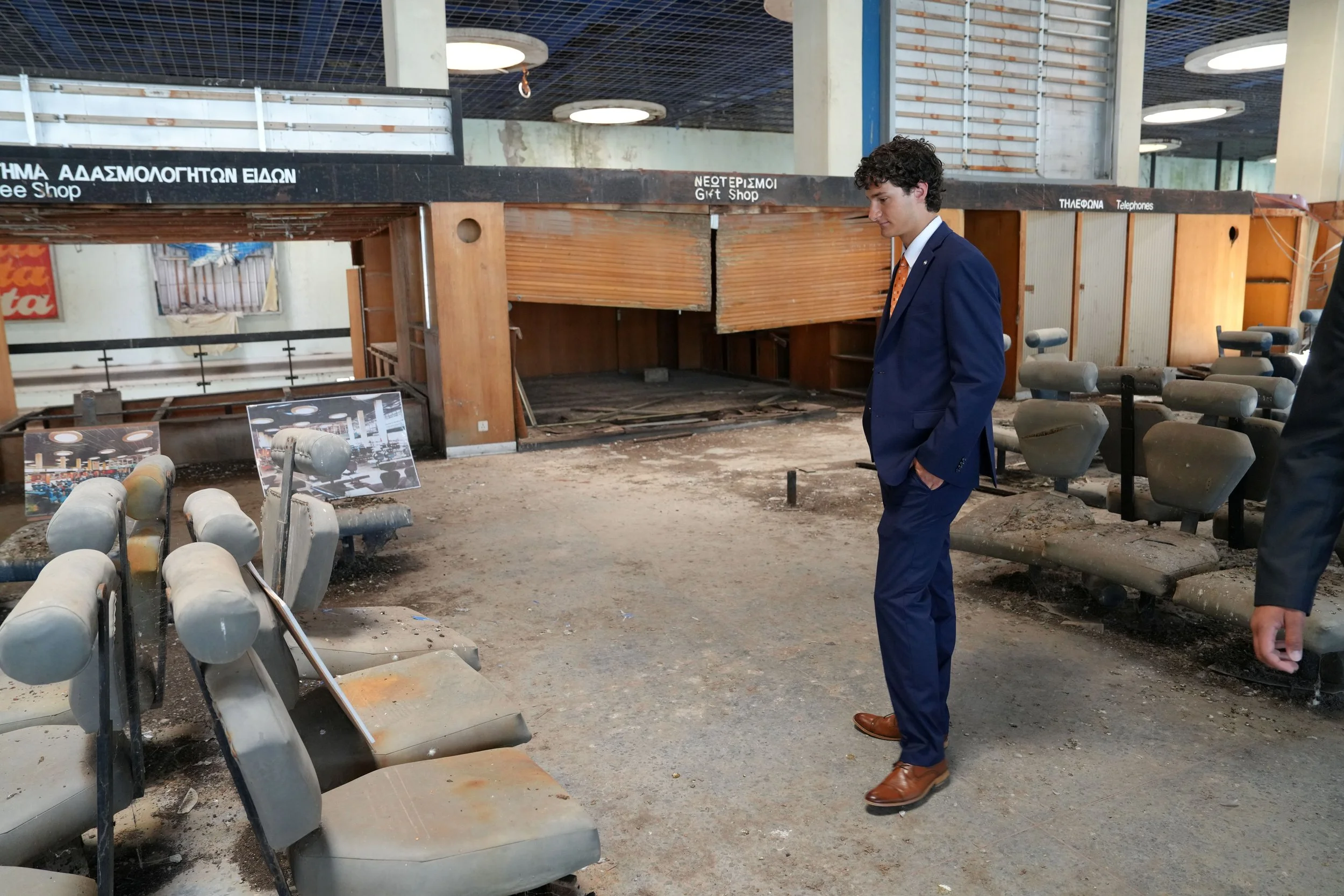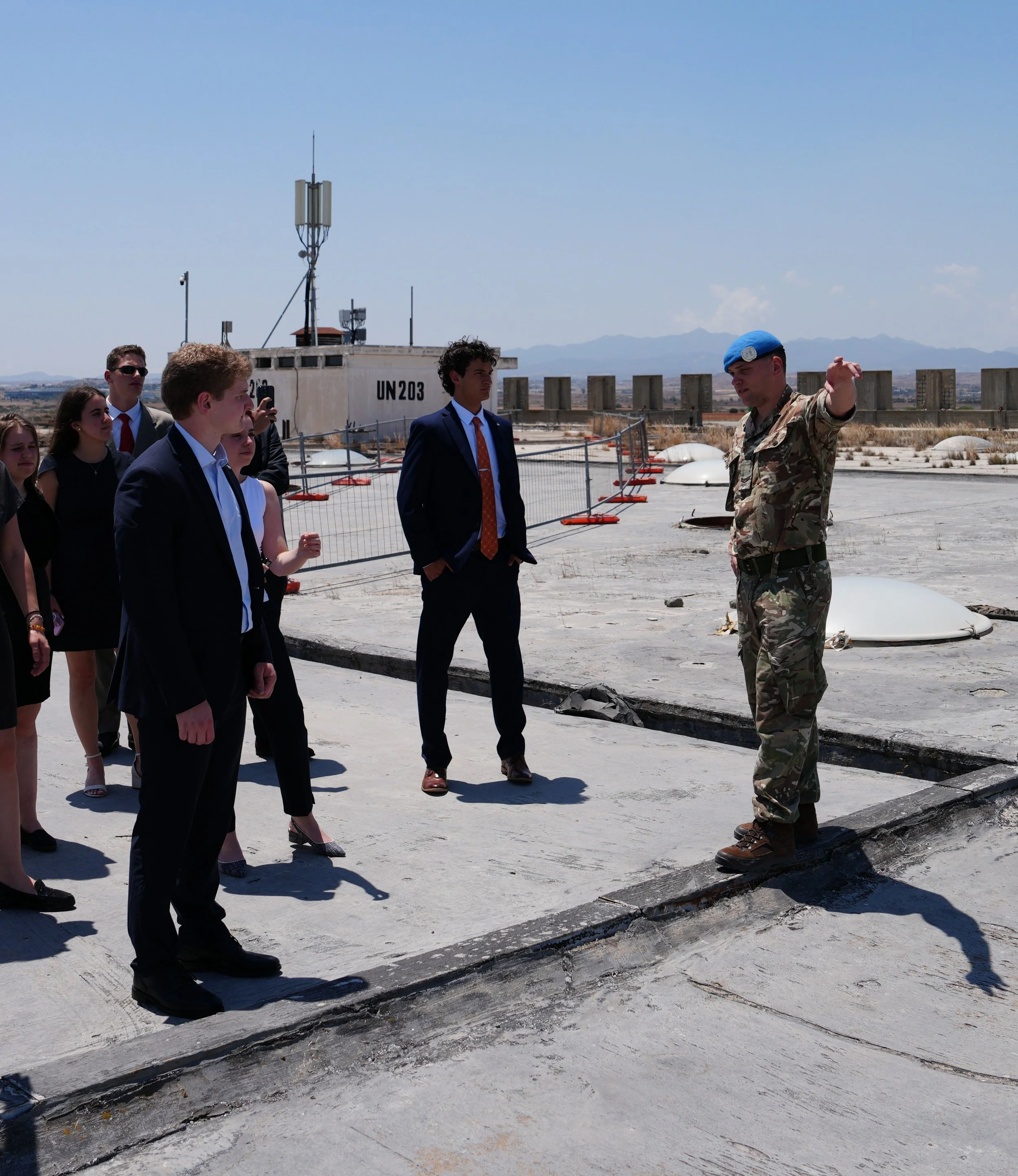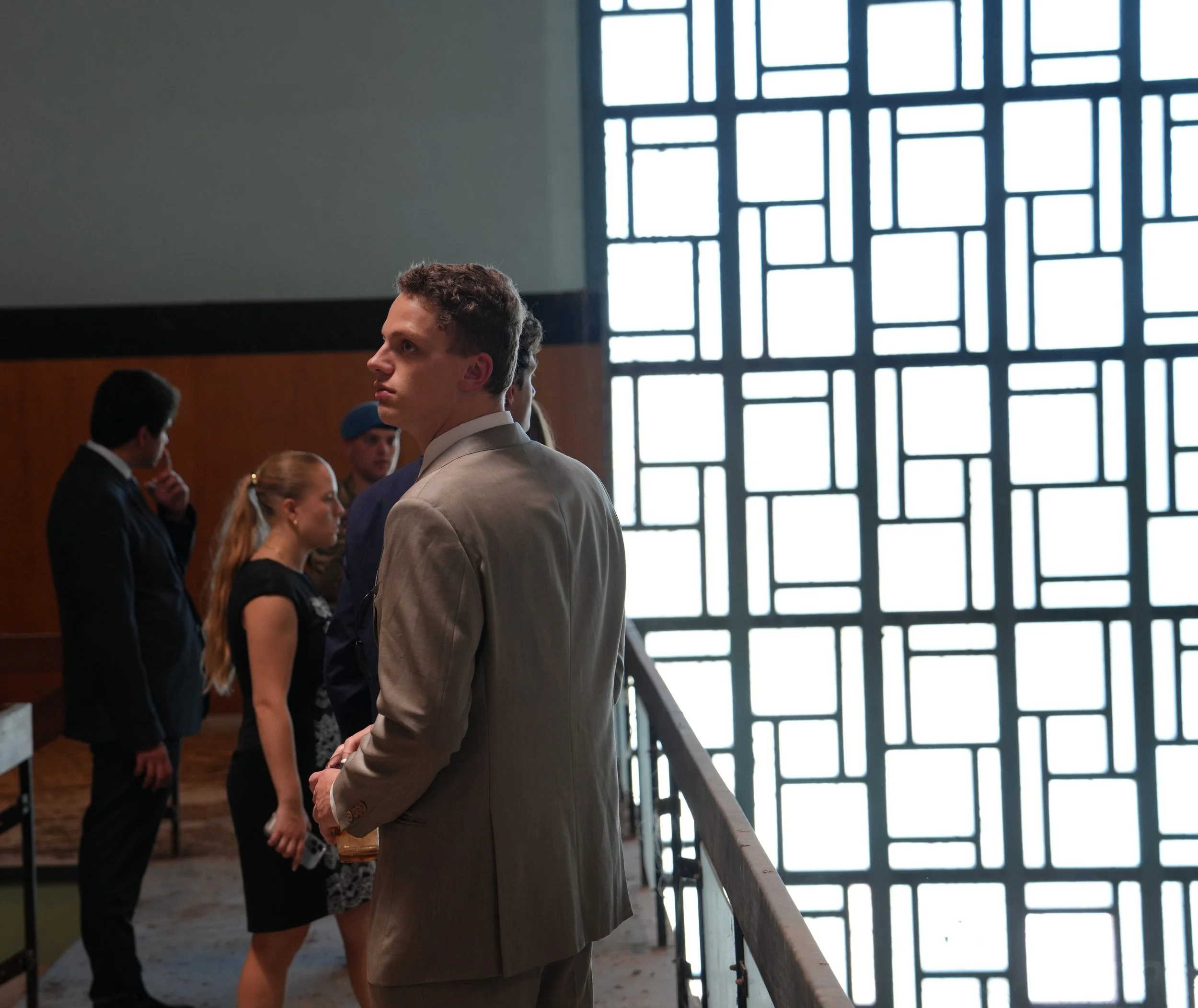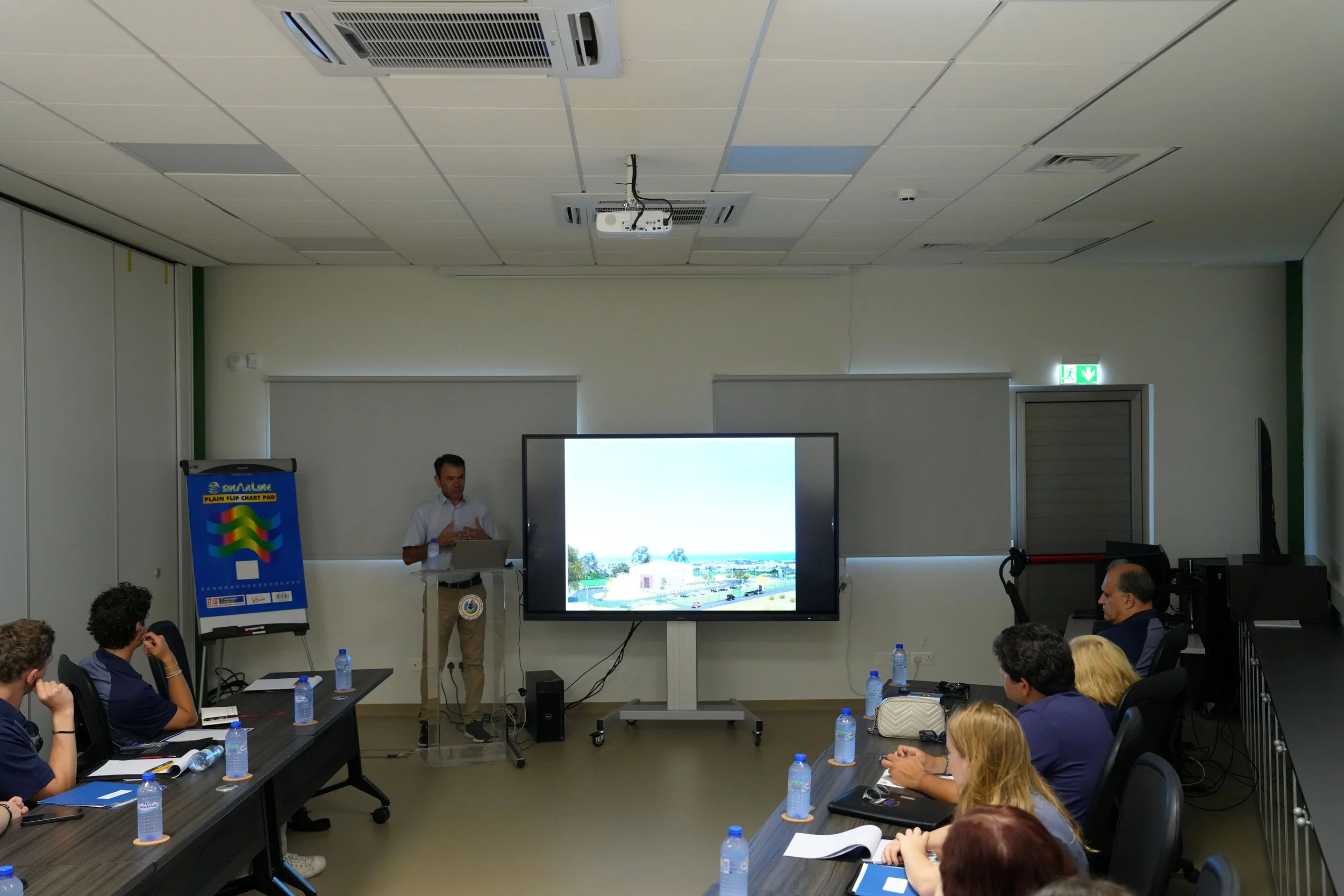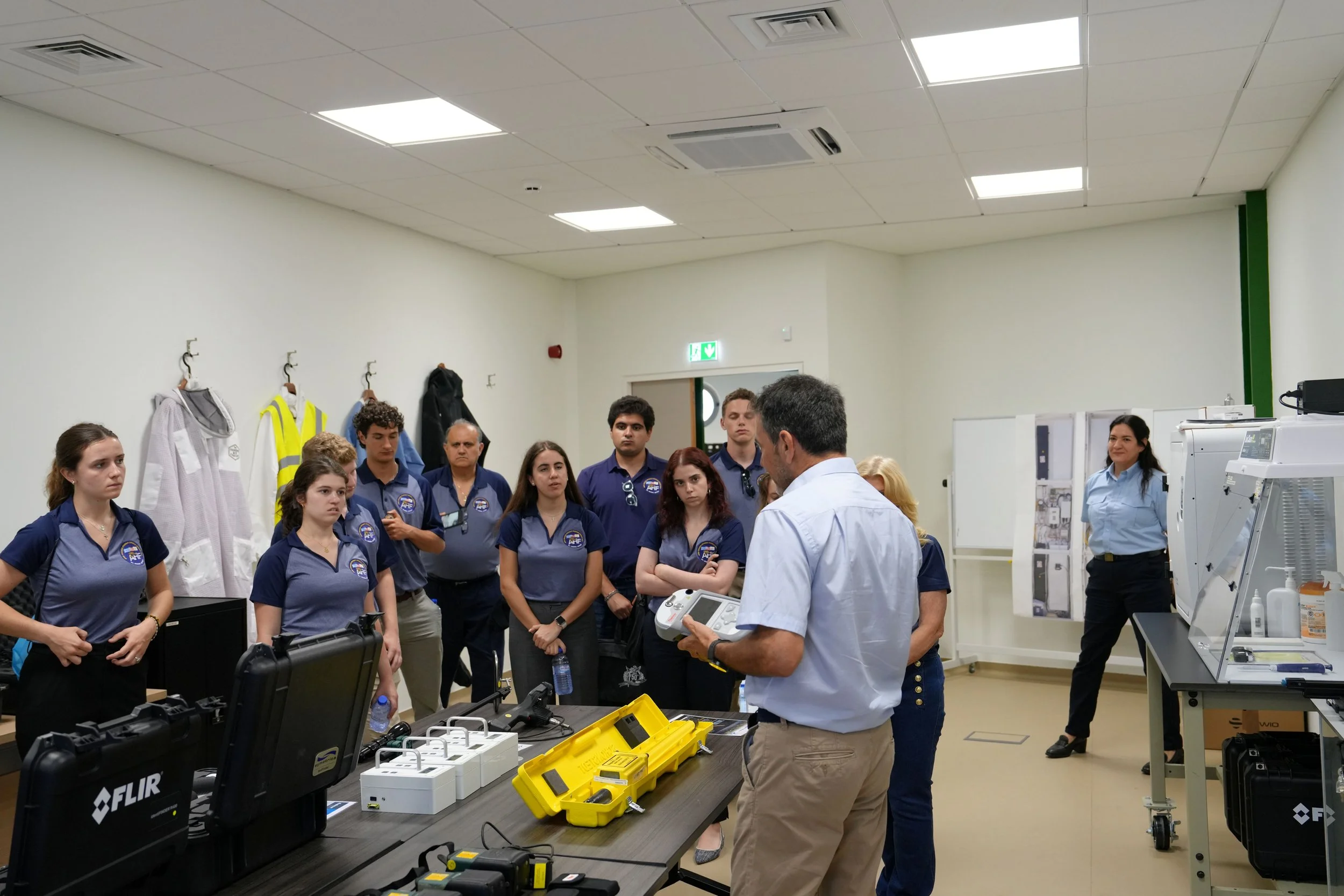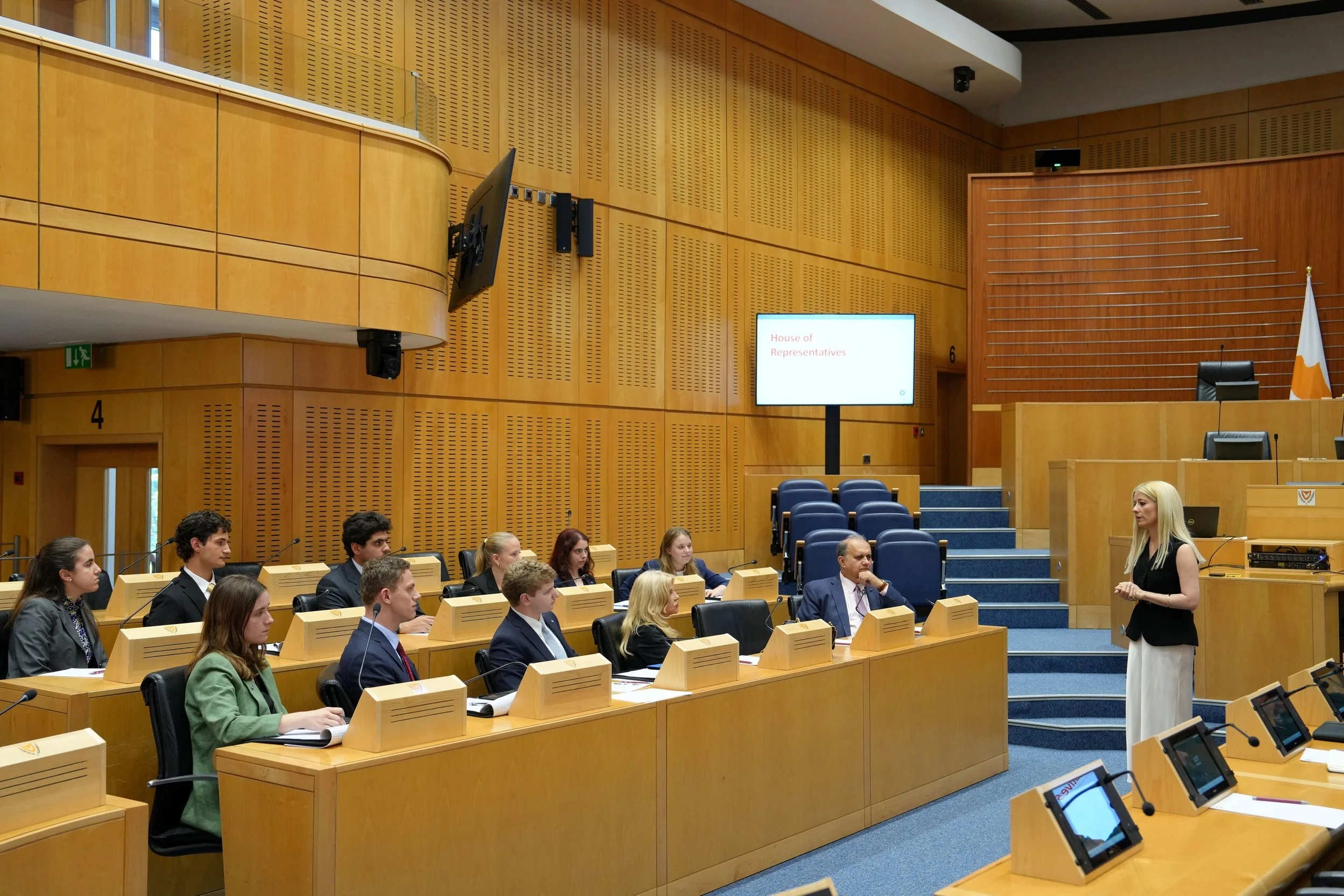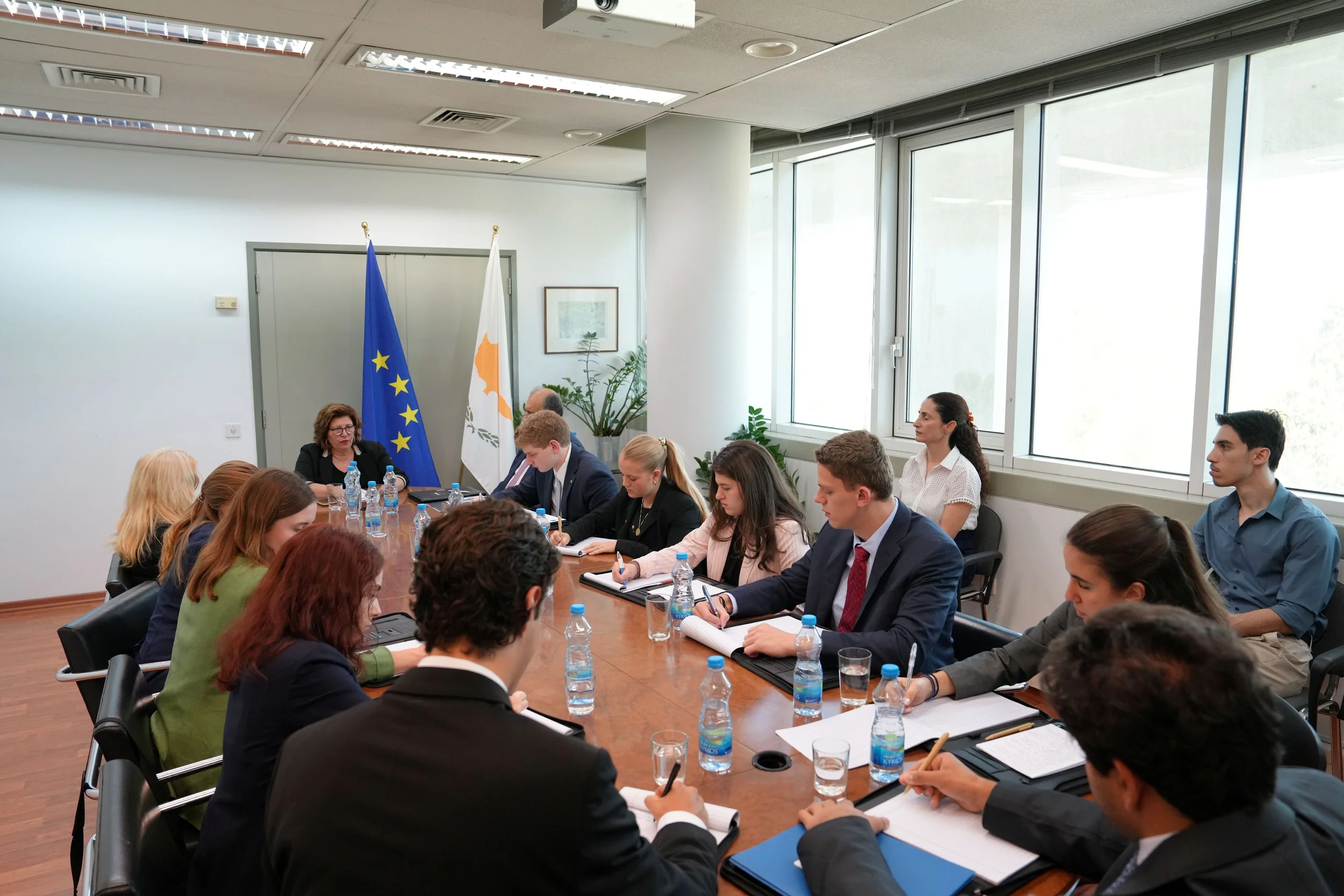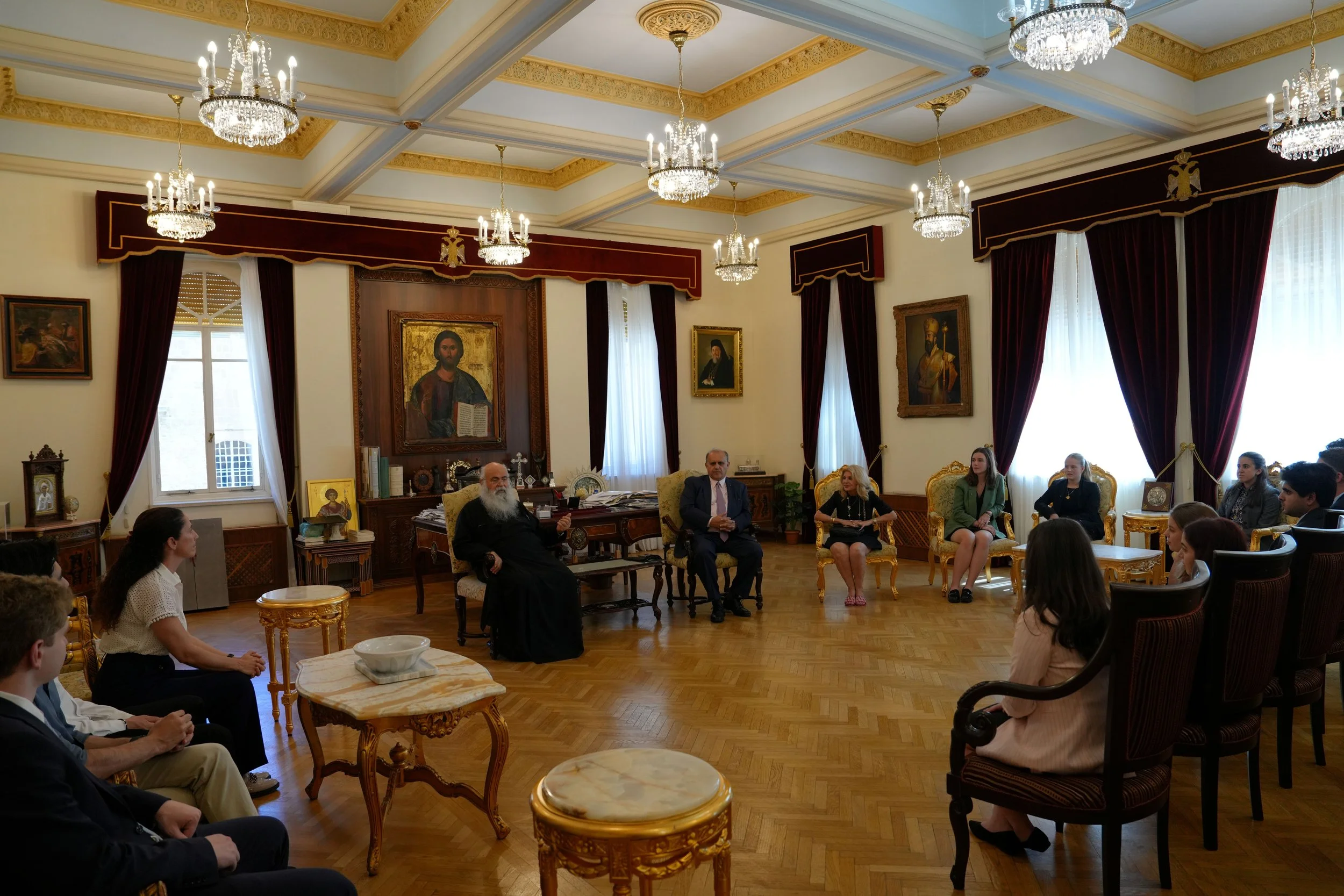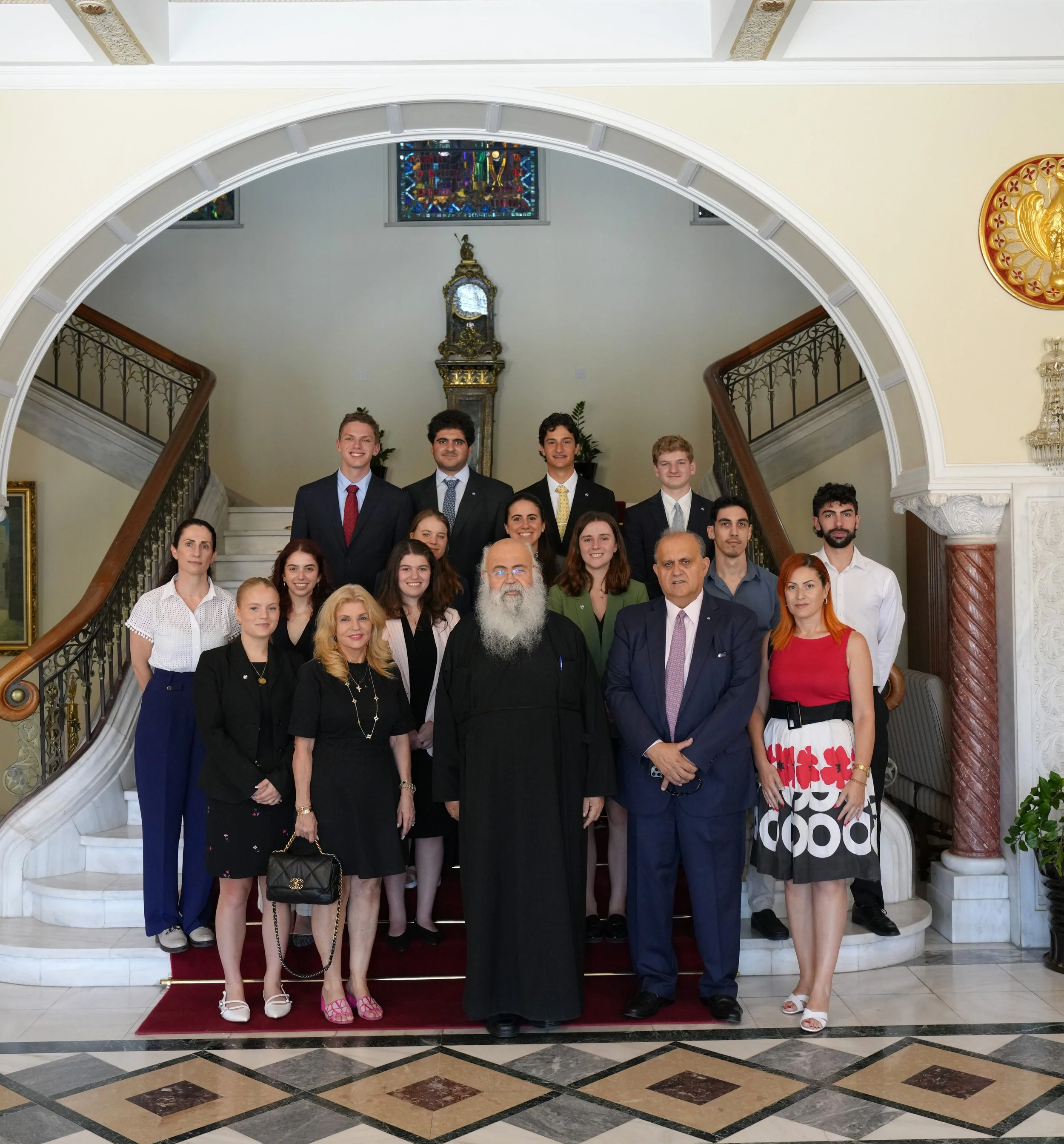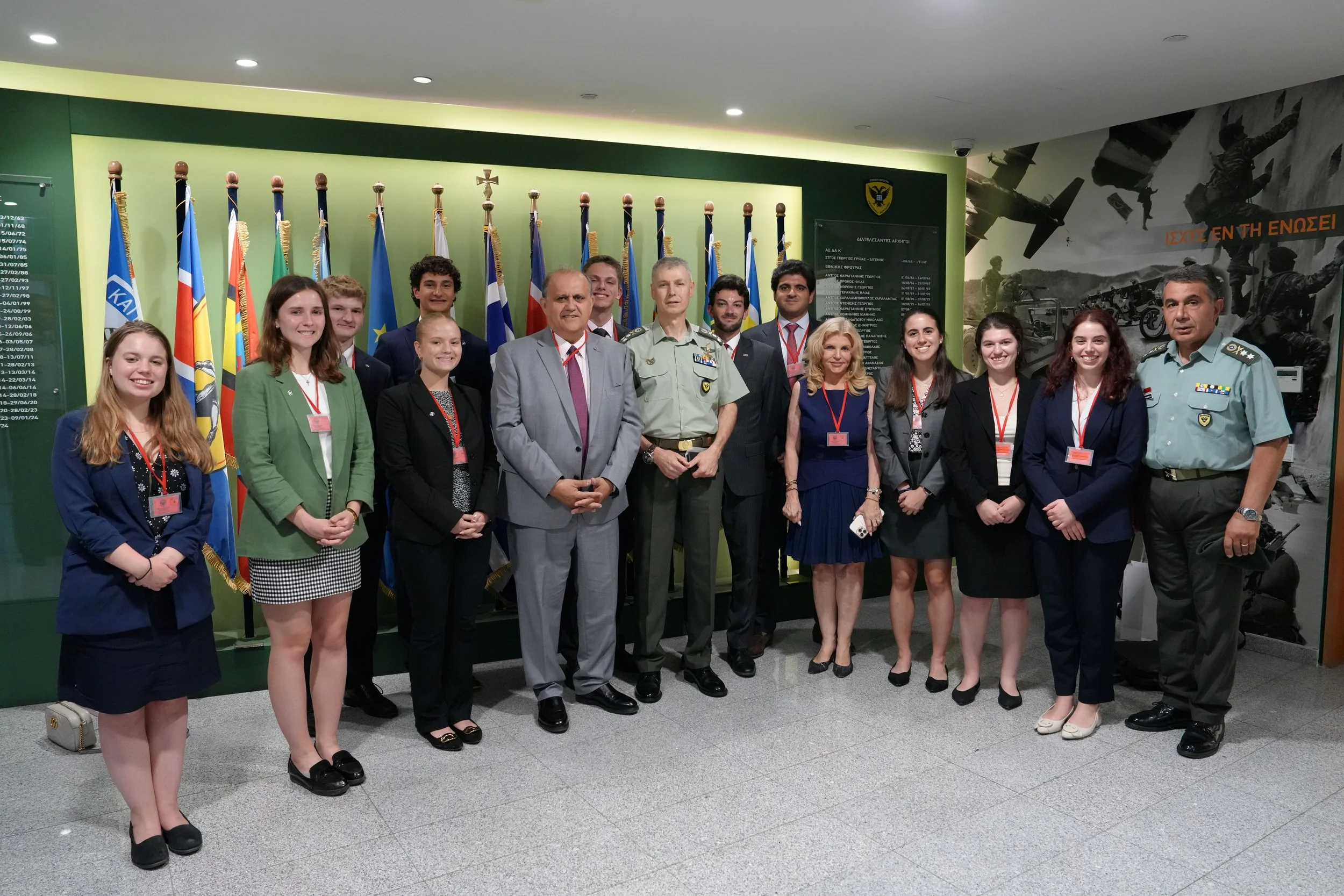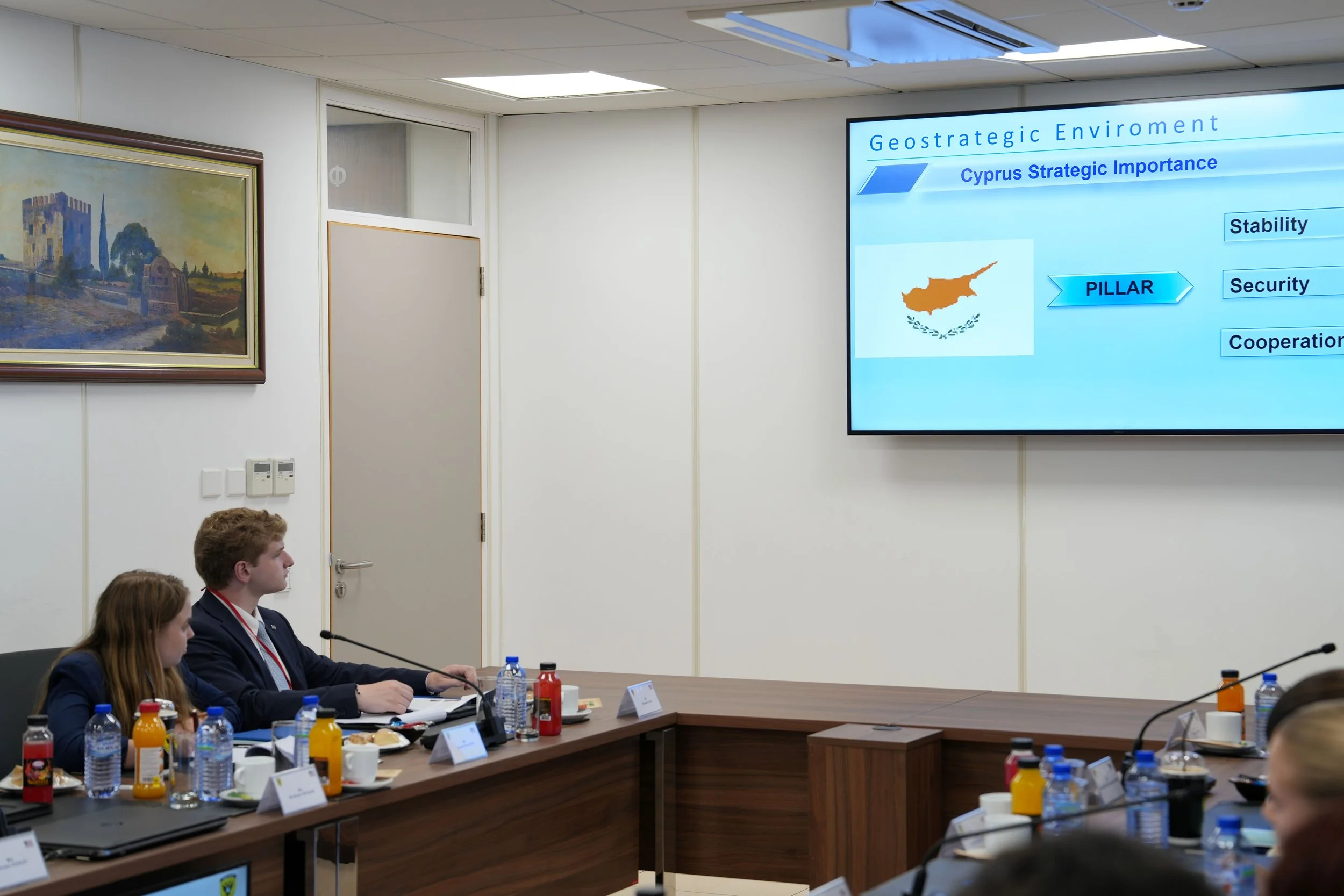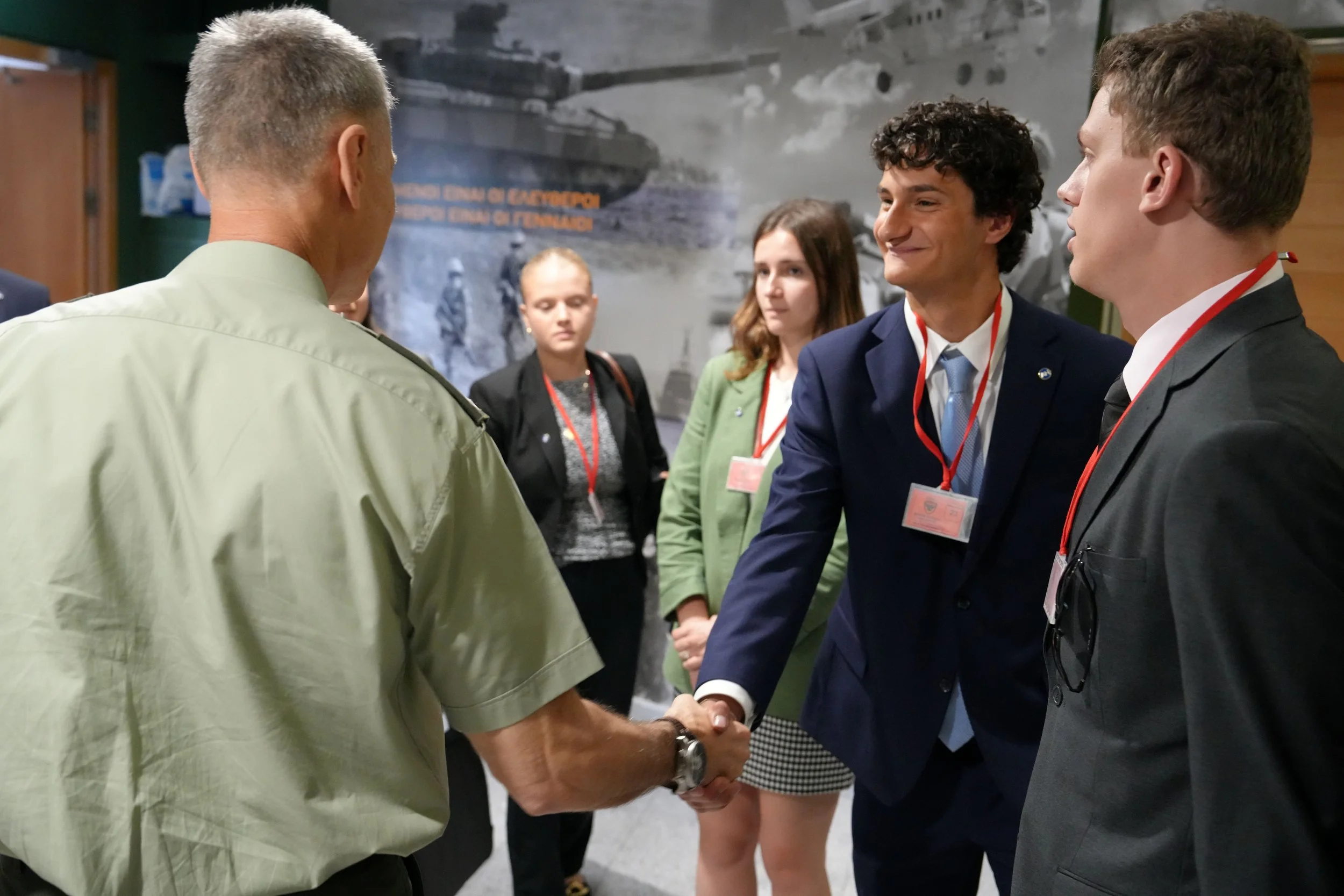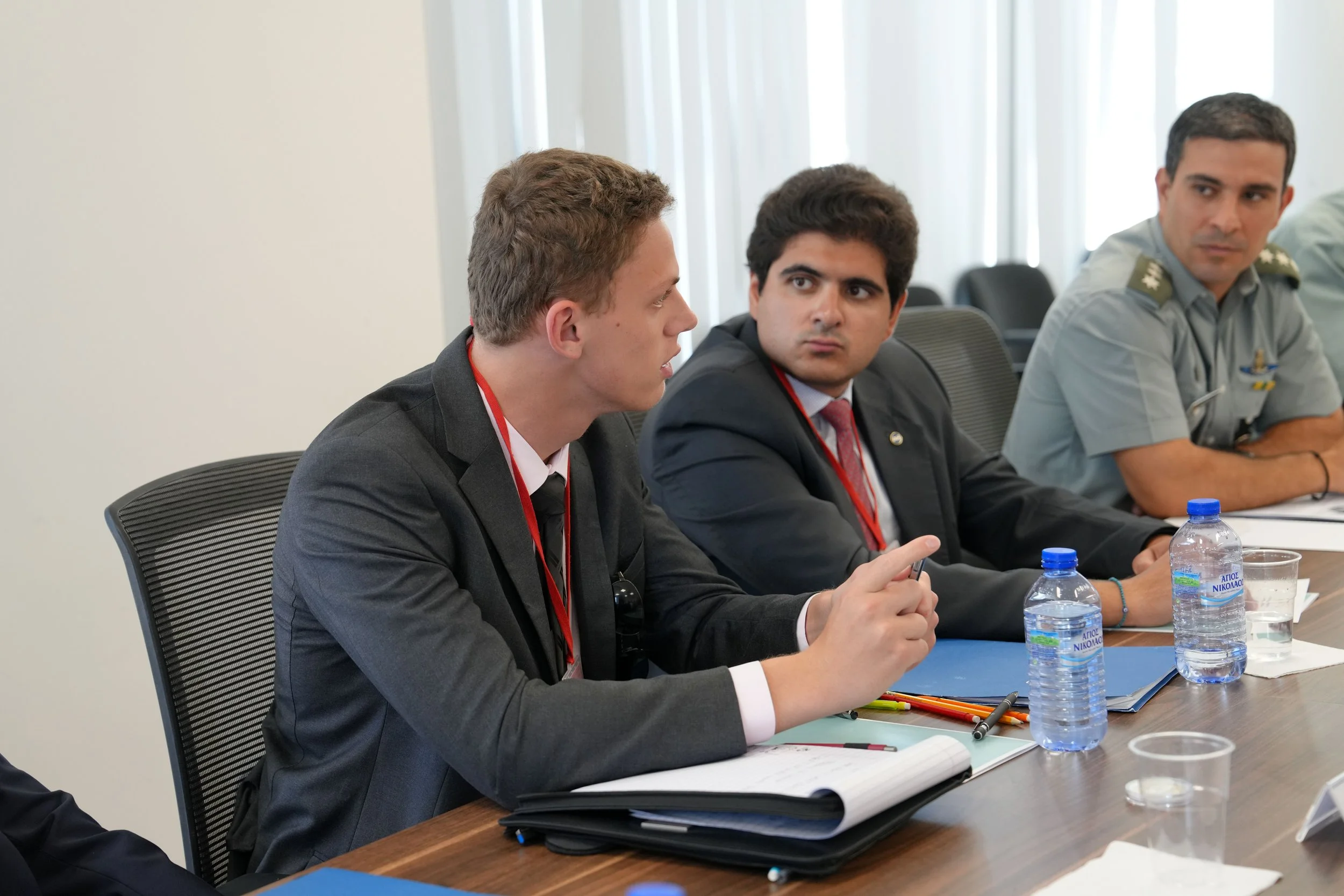AHIF Students Gain Firsthand Insight on Cyprus History and Its Strategic Importance
NICOSIA - From June 19-25, the American Hellenic Institute Foundation (AHIF) completed the Republic of Cyprus segment of its 2025 College Student Foreign Policy Trip led by AHI president Nick Larigakis and AHI legislative director Alexander Christofor. The program offered participating students a week of high-level meetings, diplomatic immersion, and policy briefings designed to deepen their understanding of U.S. interests in the Republic of Cyprus and the country’s role in the Eastern Mediterranean.
“This program continues to open doors that simply can’t be found in the classroom,” AHI President Nick Larigakis said. “These emerging leaders gain nuanced insight into the political, historical, and strategic dimensions of U.S.–Cyprus relations as well as the injustice and tragedy of the invasion and occupation of the Republic of Cyprus.”
“Since its inception, the AHIF Foreign Policy Trip has given students a rare opportunity to engage directly with policymakers, diplomats, and community leaders in Greece and the Republic of Cyprus,” Leon Andris, AHI Foundation Chairman, added. “Visits to religious and politically significant cultural sites underscored the Republic of Cyprus’s historical significance and cultural resilience, while activities connected participants with the enduring consequences of conflict and division on the island. Many alumni have gone on to careers in law, government, defense, and international affairs, carrying with them the lessons and experiences gained through the program.”
High-Level Diplomacy and Strategic Briefings
The centerpiece of the the Republic of Cyprus program came on June 23, beginning with a meeting at the Presidential Palace with President of the Republic Nikos Christodoulides, where students discussed regional security, the Cyprus issue, the Republic of Cyprus’s role in the Eastern Mediterranean, and U.S. interests in the Republic of Cyprus.
The student delegation then met with Leonidas Pantelides, the Greek Cypriot member of the Committee on Missing Persons, followed by a policy briefing with Energy Minister George Papanastasiou. The group also toured eye-opening sites including the Nicosia International Airport in the UN buffer zone — where time has “stood still” for 51 years.
Students receiving briefing from George Papanastasiou, Greek Minister of Energy, Commerce, and Industry
Students with Minister George Papanastasiou (center).
“Walking through the abandoned Nicosia airport, where 1974 boarding passes still lay untouched, I felt history come alive in a way no textbook ever could,” Sophia Alexis, a student at Georgetown University’s Walsh School of Foreign Service, said. “From meetings with U.S. and foreign officials to standing at the dividing line in Cyprus, I saw firsthand the complexity of unresolved conflicts and the role of policy in shaping futures.”
Students later received operational briefings at both the Cyprus Joint Rescue Coordination Center (J.R.C.C.) and the Cyprus Center for Land, Open-seas, and Port Security (C.Y.C.L.O.P.S.) Training Center in Larnaca. These visits gave students a practical look at institutions that are the product of enhanced U.S.–Cyprus security cooperation. They also highlighted the island’s growing strategic partnership with the United States and provided a firsthand understanding of Cyprus’s security infrastructure and its humanitarian and emergency response capabilities. The day concluded with a dinner hosted by the Service of Overseas and Repatriated Cypriots.
Witnessing Division, History, and Resilience
Earlier in the program, participants were welcomed to Nicosia with a briefing on the history of Cyprus presented by Maria Pingouras. On June 20, they took part in a full day of diplomacy that included meetings with Ambassador Theodora Constantinidou, permanent secretary of the Ministry of Foreign Affairs; His Beatitude Archbishop Georgios of Cyprus; and Annita Demetriou, president of the House of Representatives, who also hosted the delegation for lunch at the House of Representatives. They also met with Daniel E. Mangis, charge d’affaires at the U.S. Embassy, and closed the evening with a dinner hosted by Ambassador of Greece to Cyprus Ioannis Papameletiou.
President of the House of Representatives, Annita Demetriou (center) with the student delegation.
President of the House of Representatives, Annita Demetriou (standing) welcoming the student delegation to the House of Representatives.
On June 21, the delegation devoted an entire day to visiting the area of the Republic of Cyprus under occupation by Turkey, where students witnessed firsthand the ongoing 51-year division of the island. The experience offered a sobering perspective on the Cyprus issue, underscoring the human and geopolitical consequences of nearly five decades of occupation. They observed abandoned properties and religious sites left in neglect and vandalized, stark reminders of the unresolved conflict’s lasting impact.
“As a Greek American, I admittedly knew very few details on the Republic of Cyprus and more importantly the illegal invasion and occupation of the island,” Alexander Owen, a sophomore at The George Washington University, said. “Upon visiting, I was surprised as I never thought a nation could go through so much and continue to thrive. The successes of the Republic of Cyprus speak to the courageous fighting spirit held by the Cypriots.”
Isabella Marks, a junior at the University of Michigan, added, “This truly has been the experience of a lifetime—one I feel incredibly fortunate to have had … including crossing into the Turkish-occupied area of Cyprus.”
The following day, June 22, focused on the Republic of Cyprus’s rich spiritual and cultural heritage. Students toured Kykkos Monastery and visited the tomb of Archbishop Makarios III on Throni Hill, learning about his enduring role in the island’s modern history. The day concluded with a luncheon hosted by the monastery.
“The AHIF College Student Foreign Policy Trip was nothing short of life-changing,” Ana Arzoumanidis, a sophomore at Dartmouth College, said. “It taught me all about the Republic of Cyprus’s rich history and its current status as a divided nation, fully immersing me in the issues the nation currently faces by allowing me to witness them firsthand. It also humanized politicians and military leaders, giving me the confidence to continue my pursuit of a career in politics.”
The program concluded with moving commemorations and insightful commerce and defense-focused briefings on June 24. Students laid a wreath at the Makedonitissa Tomb, visited the Kolokasides Guardhouse, and engaged in discussions with Deputy Minister of Shipping Marina Hadjimanolis.
The students also visited the National Ministry of Defense and received an extensive policy briefing by Chief of the National Guard Lt. Gen. Georgios Tsitsikostas, who also hosted the delegation for a luncheon at the National Guard Officers’ Club.
“Coming back from the AHIF Foreign Policy Trip, I feel empowered to advocate for Greek and Cypriot issues in the United States,” Mia Tzafolias, a sophomore at the College of William and Mary, said. “Because of the AHIF trip, I have realized just how geopolitically significant Greece, and the Republic of Cyprus, are to the world. They offer so much more than we think.”
About the AHIF Student Foreign Policy Trip
The AHIF College Student Foreign Policy Trip is a three-week immersive program offering undergraduate and graduate students a unique opportunity to explore U.S. policy issues in Greece, the Republic of Cyprus, and the Eastern Mediterranean through direct engagement with government officials, military, religious, and diplomatic leaders. The program begins with three days of briefings in Washington, D.C., and in addition to the Cyprus segment, includes a 10-day itinerary in Greece.
For more information, please contact us at (202) 785-8430





